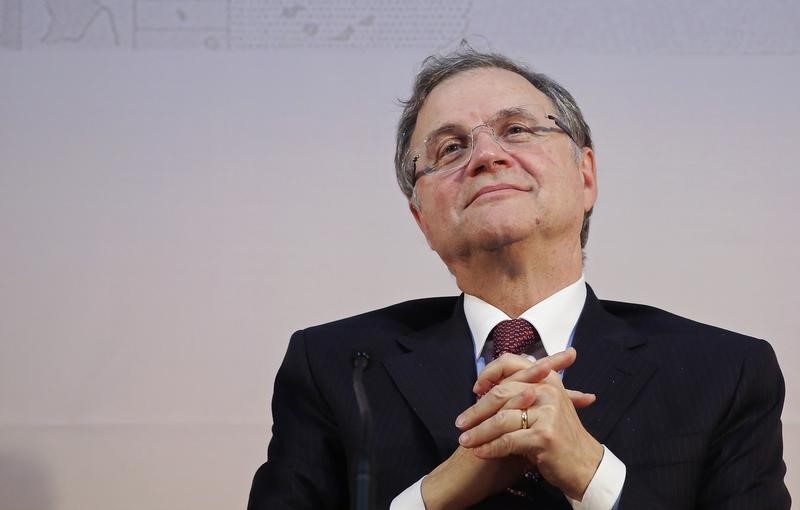By Valentina Za and Silvia Aloisi
MILAN (Reuters) - The Italian economy is expected to grow more than previously forecast this year and the next as a result of the European Central Bank's bond buying programme, Bank of Italy Governor Ignazio Visco said on Saturday.
The Italian central bank now expects the euro area's third-largest economy - and its most sluggish - to expand by more than 0.5 percent this year and more than 1.5 percent the next, Visco said in a speech at a financial conference.
Only last month, the Bank of Italy had cut its 2015 growth forecast to 0.4 percent, warning that economic recovery would be slow and fragile. Its 2016 growth estimate was previously 1.2 percent.
Speaking on the sidelines of the same conference, International Monetary Fund Executive Director Carlo Cottarelli also said the ECB's bond buying programme meant there was room "to be more optimistic" on Italy's 2015 growth.
Meanwhile, the European Commission said this week Italy would grow by 0.6 percent this year and 1.3 percent the next, while it saw the whole euro bloc expanding by 1.3 percent and 1.9 percent respectively.
Italy has not posted a single quarter of growth since the middle of 2011. Visco said that the last quarter of 2014 would be no exception mainly due to a further drop in investments.
In a bid to prevent deflation from setting in the euro area, the ECB has announced a quantitative easing scheme and will buy 60 billion euros of assets a month starting from March, targeting mainly government bonds.
Visco quantified the amount of Italian government bonds the central bank would buy as part of the ECB programme as around 130 billion euros (96.5 billion pounds).
The scheme is set to run until September 2016 or until there has been a "sustained" improvement in euro zone inflation, which has recently turned negative.
Lower interest rates and a weaker euro exchange rate could bring inflation to levels more consistent with the definition of price stability by the end of next year, Visco said.
The ECB targets inflation at just below 2 percent.
Contrary to concerns voiced by Germany's central bank, Visco said that the ECB's purchases did not make reforms to spur growth in countries like Italy less likely.
Visco also saw little risk of excessive asset price increases, but warned the Bank of Italy would watch over the possibility that very low market interest rates push yield-hungry lenders to take on too much risk.

"There are no indications that any widespread imbalances are forming in the euro area at the moment," he said.